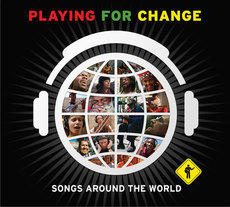This year’s
Social Media for Nonprofits conference in New York wasn’t actually about social media.* It was about values and personality. Two ideas in particular stood out – uncomfortable transparency and practical optimism. Here’s how they came through…
Uncomfortable Transparency:On
charity:water’s fourth birthday, the young nonprofit celebrated by live-streaming an ambitious new drilling project…and failed.
When
Paull Young, charity:water’s Director of Digital Engagement, told this story at the conference, it was with genuine disappointment, but also gratitude. Charity:water’s followers and fans posted on Facebook comments like, “We appreciate your transparency,” and “I think this is perhaps even more important than sharing your successes.” Donations flooded in, and the next day charity:water got more hits on its website than ever before.
Young called this “uncomfortable transparency.” He urged us to be honest about our failures as well as our successes, and to “fail fast and learn.” Ultimately, he reminded us, people want to hear the truth. (Several months later, charity:water returned to the drill site, this time striking water.)
Practical Optimism:Seeing
Alexis Ohanian on stage showing a picture of a grinning kitten and declaring that this shot embodied his feelings about the Internet, the audience couldn’t help but be charmed. We were surprised and delighted by his joyfulness.
Ohanian, a co-founder of
Reddit,
Hipmunk,
BreadPig, and other do-gooder projects with goofy titles and terminally cute mascots, is a firm believer in the “benevolent web.” At the beginning of his presentation, he asked for a show of hands, “How many of you believe that most people are fundamentally good?” The vast majority of attendees smiled, lifting their hands high. “If you believe that, then most of the people online are good, too…” He went on to talk about a Reddit community devoted exclusively to sending pizzas to one another, and a save-the-whales naming contest that resulted in both the cancellation of a whale-hunting expedition and a several ton sea creature being dubbed “Mr. Splashypants.”
Ohanian’s enthusiasm was contagious. I walked away from his presentation feeling like I did after seeing “Scott Pilgrim vs. The World” – really believing in the eventual triumph of love over hate, of light over darkness, and knowing that I could be a part of that. His optimism wasn’t blind hopefulness, either; it was authentic, even strategic. Essentially, he reminded me that you can’t work in the nonprofit world without believing that things can be better, and that people want to
be good, and
do good. That fundamental assumption, that practical optimism, should be reflected in the way we work online.
There were many other outstanding presentations, and I encourage you to check out the hashtag (#sm4np) and Slideshare for some great resources.*(Ok, you got me – #sm4np
was about social media, too. The conference provided a solid overview of some important themes in effective social media use: listening, storytelling, branding, analysis and reflection; all kinds of good stuff.
Farra Trompeter of
Big Duck, who also spoke at the conference, wrote an excellent overview of the complete line-up of sessions,
which you can see here. Gatherings like #sm4np provide excellent opportunities for getting introduced to new tools and concepts, as well as prime networking time. I highly encourage representatives from Jewish organizations to attend these events when possible, hear about what’s happening in social media and the nonprofit world, and share what they’ve learned!)
Do the concepts of “uncomfortable transparency” and “practical optimism” resonate with you? Share your thoughts in the comments!



 RSS Feed
RSS Feed